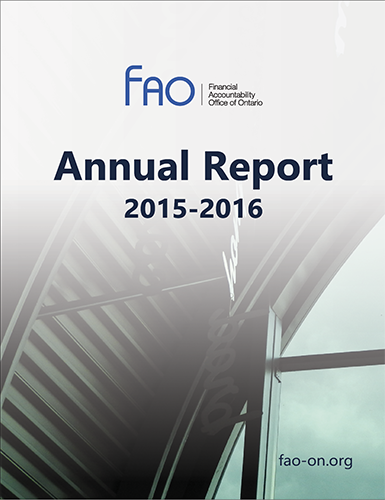2015-2016 Annual Report

This report summarizes the FAO’s activities and provides an update on the FAO’s access to information and support provided to the Legislative Assembly of Ontario.
2015-2016 Annual Report, Financial Accountability Office of Ontario, 2016.

